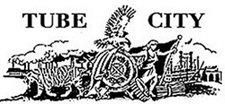Quotes of the day- Eric Hoffer:
Eric Hoffer (July 25, 1902
– May 21, 1983) was an American social writer. He was the author of ten
books and was awarded the Presidential Medal of Freedom in February
1983. His first book, The True Believer, published in 1951, was
widely recognized as a classic, receiving critical acclaim from both
scholars and laymen, although Hoffer believed that his book The
Ordeal of Change was his finest work. In 2001, the Eric Hoffer Award
was established in his honor with permission granted by the Eric Hoffer
Estate in 2005. (Click
here for full article.)
A man is likely to mind his own business when it is worth minding. When it is not, he takes his mind off his own meaningless affairs by minding other people's business.
A society becomes stagnant when its people are too rational or too serious to be tempted by baubles.
A sublime religion inevitably generates a strong feeling of guilt. There is an unavoidable contrast between loftiness of profession and imperfection of practice. And, as one would expect, the feeling of guilt promotes hate and brazenness. Thus it seems that the more sublime the faith the more virulent the hatred it breeds.
Absolute faith corrupts as absolutely as absolute power.
An empty head is not really empty; it is stuffed with rubbish. Hence the difficulty of forcing anything into an empty head.
Every great cause begins as a movement, becomes a business, and eventually degenerates into a racket.
Every new adjustment is a crisis in self-esteem.
Fair play is primarily not blaming others for anything that is wrong with us.
Faith in a holy cause is to a considerable extent a substitute for lost faith in ourselves.
Far more crucial than what we know or what we do not know is what we do not want to know.
Glory is largely a theatrical concept. There is no striving for glory without a vivid awareness of an audience- the knowledge that our mighty deeds will come to the ears of our contemporaries or “of those who are to be.”
Humility is not renunciation of pride but the substitution of one pride for another.
In a time of drastic change it is the learners who inherit the future. The learned usually find themselves equipped to live in a world that no longer exists.
It is a perplexing and unpleasant truth that when men have something worth fighting for, they do not feel like fighting.
It is easier to love humanity as a whole than to love one's neighbor.
It is the malady of our age that the young are so busy teaching us that they have no time left to learn.
It is when power is wedded to chronic fear that it becomes formidable.
Many of the insights of the saint stem from his experiences as a sinner.
No one has a right to happiness.
Our greatest pretenses are built up not to hide the evil and ugly in us, but our emptiness. The hardest thing to hide is something that is not there.
Our passionate preoccupation with the sky, the stars, and a God somewhere in outer space is a homing impulse. We are drawn back to where we came from.
Passionate hatred can give meaning and purpose to an empty life.
People who bite the hand that feeds them usually lick the boot that kicks them.
Propaganda does not deceive people; it merely helps them to deceive themselves.
Rudeness is now serving as a substitute for power, for faith, and for achievement.
Rudeness is the weak man's imitation of strength.
Scratch an intellectual and you find a would-be aristocrat who loathes the sight, the sound, and the smell of common folk.
Self-esteem and self-contempt have specific odors; they can be smelled.
Self-righteousness is a loud din raised to drown the voice of guilt within us.
Sometimes it seems that people hear best what we do not say.
The basic test of freedom is perhaps less in what we are free to do than in what we are free not to do.
The benevolent despot who sees himself as a shepherd of the people still demands from others the submissiveness of sheep.
The compulsion to take ourselves seriously is in inverse proportion to our creative capacity. When the creative flow dries up, all we have left is our importance.
The fear of becoming a has-been keeps some people from becoming anything.
The feeling of being hurried is not usually the result of living a full life and having no time. It is, rather, born of a vague fear that we are wasting our life.
The greatest weariness comes from work not done.
The Greeks invented logic but were not fooled by it.
The hardest arithmetic to master is that which enables us to count our blessings.
The less justified a man is in claiming excellence for his own self, the more ready he is to claim all excellence for his nation, his religion, his race or his holy cause.
The opposite of the religious fanatic is not the fanatical atheist but the gentle cynic who cares not whether there is a god or not.
The remarkable thing is that it is the crowded life that is most easily remembered. A life full of turns, achievements, disappointments, surprises, and crises is a life full of landmarks. The empty life has even its few details blurred, and cannot be remembered with certainty.
The search for happiness is one of the chief sources of unhappiness.
The so-called nonconformists travel in groups and woe unto him who doesn't conform.
The true believer is eternally incomplete, eternally insecure.
The well-adjusted make poor prophets.
There are no chaste minds. Minds copulate wherever they meet.
There can be no real freedom without the freedom to fail.
There is a tendency to judge a race, a nation or any distinct group by its least worthy members.
To know a person's religion we need not listen to his profession of faith but must find his brand of intolerance.
To the intellectual, America's unforgivable sin is that it has revolutions without revolutionaries, and achieves the momentous in a matter-of-fact way.
Unlimited opportunities can be as potent a cause of frustration as a paucity or lack of opportunities.
We can remember minutely and precisely only the things which never really happened to us.
We cannot win the weak by sharing our wealth with them. They feel our generosity as oppression.
We clamor for equality chiefly in matters in which we ourselves cannot hope to obtain excellence.
We have rudiments of reverence for the human body, but we consider as nothing the rape of the human mind.
We lie loudest when we lie to ourselves.
We usually see only the things we are looking for- so much so that we sometimes see them where they are not.
When people are free to do as they please, they usually imitate each other.
When there is the necessary technical skill to move mountains, there is no need for the faith that moves mountains.
You can discover what your enemy fears most by observing the means he uses to frighten you.
You can never get enough of what you don't need to make you happy.
You cannot gauge the intelligence of an American by talking with him.
Categories: Eric Hoffer, Quotes of the day
Home KGB on Bluesky KGB on Substack
KGB Stuff Commentwear E-Mail KGB
Donate via PayPal

















